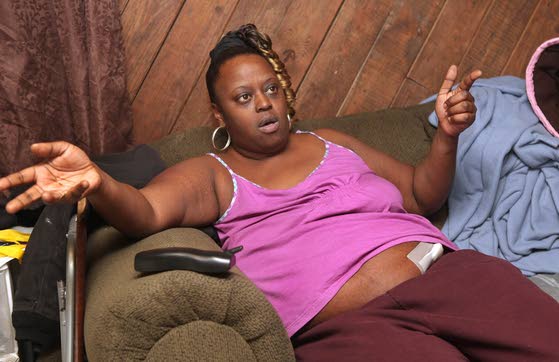Stuff Black People Don’t Like
September 30, 2015
One of my most “liberal” (I don’t really believe in the left/right paradigm anymore: either you understand race or you don’t…) friends and I were in New Orleans not long ago, followed by a trip to Key West.
I told him, “tell me what you notice about each place and what’s the primary difference between NOLA and Key West?”
We went to NOLA first, and then after only a few hours in Key West not long after he looked at me, and begrudgingly said, “I don’t see a cop anywhere, and in New Orleans you couldn’t turn your head without seeing a cop.”
Why might that be?
The answer is quite simple: blacks.
New Orleans has a surplus black population Hurricane Katrina tried to dump on cities like Atlanta and Houston; Key West’s primary asset (New Orleans’ liability) is a lack of blacks, meaning restaurants and businesses have little need for hiring security guards and installing expensive cameras to protect their merchandise, employees, and cash in the registers.
With a huge black population, New Orleans is stressed financially to provide sufficient police coverage to protect tax-producing businesses from the criminality hovering around this racial group like the morning dew covering Dixie.
Key West doesn’t seem to have this problem, because it doesn’t have blacks.
So when you understand the reality of black criminality, you’ll understand why restaurants in New Orleans are closing because of the out-of-control costs of security. [After Uptown robberies, restaurants struggle with security costs, NOLA, 9-29-15]:
The recent string of armed robberies at Uptown New Orleans restaurants and bars has many proprietors rethinking their security strategies, fearing theirs could be the next business targeted by masked gunmen. But there’s only so much cash-strapped owners can do, said Amanda Toups of Toups Meatery.
After robberies at Patois and Atchafalya, Toups’ Mid-City restaurant changed the way it closes, locking the doors immediately after the last customer leaves. Employees also stopped counting the night’s money at the bar.
But beyond that, little can be done to stop armed criminals intent on robbing restaurants during dinner service, Toups said. A full-time security guard is one option, but for a business that operates on a narrow profit margin, such a solution would be cost-prohibitive, Toups said.
“After Patois was robbed we had a woman call asking if we were going to have an armed guard that night,” Toups said. “I said, ‘No. But I have a big mean husband with a big mean knife.’ So she said, ‘Ok. See you at 7.’”
“I don’t know how I feel about hiring security, how our customers will feel when they walk in and see a guy with a gun standing at the door. It feels like we’d be giving in.”
The first of the Uptown robberies happened Aug. 20 at Patois, followed by Atchafalaya on Sept. 24 and Monkey Hill Bar four days later. Police haven’t linked the three holdups, although they were all carried out in a similar fashion: Armed gunmen stormed into the business before closing, robbing the owners, employees and customers.
For Ray Gruezke, owner of Rue 127 on North Carrollton Avenue, the crime spree brings back painful memories. Almost three years ago, two gunmen robbed his restaurant shortly before closing. They entered through a back door, threatened Gruezke with a gun and stole his computer and the night’s revenue.
The customers ran out the entrance before the robbers made it to the front of the restaurant, he said. The police never caught the suspects, despite witnesses providing the license plate number of the getaway car, said a frustrated Gruezke.
After the robbery, he installed gates around the building, video cameras and a large safe and changed how employees handle cash at the end of the night. But like Toups, Gruezke said he couldn’t afford to hire a security guard.
“This really brings it all back. But you just have to keep going,” Gruezke said. “When I was robbed, it was scary and you think about closing. But if you give in and change who you are and what you do, they’ve won. They got your money, and they’ve won.”
Mat and Nadie’s, 937 Leonidas St., is one of the few restaurants that pays for an officer to keep watch over customers and employees on a nightly basis.
Even though it costs close to $30,000 annually, times like these make it seem like a sound investment, owner Steve Schwarz said.
“I could hire another cook and a half for that, but when you hear about all the stuff going on, we’re happy we have it and our employees appreciate it,” Schwarz said.
The cost of doing business in a city shouldn’t be tolerating black criminality and hiring profit-decimating security guards just to provide security and safety for your employees, customers and ultimately, your investment.
One day, our children will look back on this time period and wonder why we spent so much time squabbling about silly partisan politics, when the only real problem was our inability to construct sound social policy based on the reality of race (discernible in every facet of life if you only dare notice).
